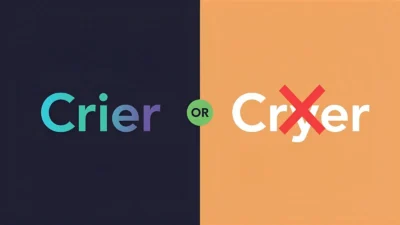When writing in English, you may have come across the words “honor” and “honour.” At first glance, they look almost identical, yet one letter makes learners pause. Are they two separate words? Do they have different meanings? Or is one simply a mistake?
Many people search for “honor vs honour” because they want clarity when writing emails, reports, or academic work. The confusion comes from differences between British English and American English spelling rules. Understanding which one to use depends on where your audience is located.
In this guide, we’ll explain the meaning, origin, spelling rules, common mistakes, and usage trends of honor vs honour. By the end, you’ll know exactly which spelling to use for different contexts and how to avoid errors in professional writing.
Honor vs Honour – Quick Answer
Both “honor” and “honour” mean the same thing: respect, recognition, or high moral standards.
- Honor → American English spelling (used in the US).
- Honour → British English spelling (used in the UK, Canada, Australia, and other Commonwealth countries).
Example:
- US: She received the highest honor from the university.
- UK: It was an honour to meet the Prime Minister.
The Origin of Honor vs Honour
The word comes from the Latin “honor,” meaning esteem or dignity.
In Middle English, it appeared as “honour,” influenced by French spelling. When American English began standardizing spellings in the 18th century, Noah Webster simplified many words by removing the “-u” to make them easier to write and pronounce.
That’s why today:
- UK/Commonwealth → honour
- US → honor
British English vs American English Spelling
The key rule:
- British English keeps -our endings (honour, colour, neighbour).
- American English drops the “u” (honor, color, neighbor).
Comparison Table
| Word (UK/Commonwealth) | Word (US) | Meaning |
| Honour | Honor | Respect, moral value |
| Colour | Color | Shade, pigment |
| Neighbour | Neighbor | Person living nearby |
| Favour | Favor | Kind act or preference |
| Labour | Labor | Work or effort |
Which Spelling Should You Use?
It depends on your audience:
- Writing for the US → Use honor.
- Writing for the UK/Commonwealth → Use honour.
- Writing for a global audience → Choose one and stay consistent (many international brands lean toward US spelling for simplicity).
Common Mistakes with Honor vs Honour
- Mixing spellings in the same text (honor in one sentence, honour in another).
- Using honorary vs honourary → Only honorary is correct in all English varieties.
- Thinking the meanings differ → They don’t; it’s purely a spelling difference.
Honor vs Honour in Everyday Examples
- Email: It would be an honour/honor to join your team.
- News: The soldier was awarded the nation’s highest honor/honour.
- Social Media: What an honor/honour to be recognized by my peers.
- Formal Writing: Graduating with distinction is considered a great honor/honour.
Honor vs Honour – Google Trends & Usage Data
- United States: “Honor” is dominant.
- United Kingdom, Canada, Australia, India: “Honour” is standard.
- Global web usage: “Honor” appears more often due to American media and technology influence.
Usage Comparison
| Region | Preferred Spelling | Example |
| United States | Honor | Medal of Honor |
| United Kingdom | Honour | Order of the British Empire (Honour) |
| Canada | Honour | Governor General’s Honour List |
| Australia | Honour | Honour Roll of Fame |
| Global Internet | Honor | Honor brand (smartphones) |
FAQs on Honor vs Honour
Q1: Is honour wrong?
No. Honour is correct in British English.
Q2: Is honor American or British?
Honor is American English.
Q3: Do honor and honour have different meanings?
No. They mean the same thing.
Q4: Which is used more, honor or honour?
Globally, “honor” is more common due to American influence.
Q5: Can I use honor in UK writing?
It’s understood, but “honour” is preferred in formal UK contexts.
Q6: Why did Americans drop the ‘u’?
Spelling reform by Noah Webster simplified words.
Q7: Is “honorary” spelled with a U in British English?
No. The correct spelling everywhere is “honorary.”
Conclusion
The debate over “honor vs honour” is not about meaning but spelling. Both words come from the same Latin root and represent respect, dignity, or recognition. The difference lies in whether you follow British English (-our) or American English (-or).
If you’re writing for an American audience, stick with honor. For the UK and Commonwealth, use honour. For global content, either is fine as long as you stay consistent.
By understanding the spelling rules and context, you can avoid common mistakes and ensure your writing feels natural, professional, and correct to your readers.

Mark Twain is a legendary writer at lingorae.com, celebrated for his sharp wit and timeless humor.
A true master of puns, he crafts clever wordplay that entertains and delights readers.




